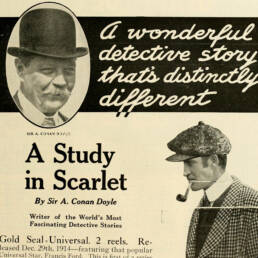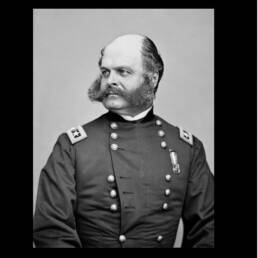It often takes a nemesis to bring out the best in a great artiste. While the instrumental duels between Pandit Ravi Shankar and Ustad Vilayat Khan mesmerized music lovers, who was whose nemesis?
When it comes to Indian classical music, Pt. Ravi Shankar doesn’t need an introduction. His illustrated career and national and international recognition are unparalleled testimony of his Godly talent.
And, it is well known that the environment where Ravi Shankar grew up, played a significant role in shaping him up as a sitar maestro and his subsequent international exposure.
He first experienced fame when he toured Europe as a dancer in his elder brother Uday Shankar’s group. But when he encountered Western classical music and Jazz, he decided to take a different path in the world of performing arts from Uday.
With a teacher like Allauddin Khan and peers like Ali Akbar Khan and Annapurna Devi, Ravi Shankar soon became indomitable in his field. Later his association with violinist Yehudi Menuhin and Beatles guitarist George Harrison put Ravi Shankar in the pages of golden history.
However, back in his own country, another boy, almost a decade younger than Ravi Shankar was raising a few eyebrows with his early grasp on the same instrument.
The first time these two stalwarts met was when Ravi Shankar and his guru, Allauddin Khan heard the boy playing on All India Radio (AIR) Delhi station.
Mesmerized by his expertise, Allauddin Khan immediately called for him from the Akashvani Bhavan to meet him in person. ‘You are Enayat’s elder son?’- the boy nodded to Allauddin’s query. He then told him it would be an honor to teach him just like he taught Ravi Shankar.
The wonder boy Vilayat Khan, however, never returned to learn from him. A probable reason could be that Allauddin Khan was the pioneer of modern Maihar gharana while Vilayat was the torch bearer of Etawah gharana, his family legacy.
Vilayat’s refusal might also have been influenced by the fact that he had already set the goal to become a better musician than Ravi Shankar, despite the latter’s elite guidance.
Though Vilayat’s earlier musical lessons came from his uncle Wahid Khan, his growing maturity was a result of self-learning.
The famous AIR broadcaster Zulfiqar Ali Bukhari, who was known to have provided the AIR platform to many budding musicians, became Vilayat’s first step to national exposure.
He offered him a garage space behind AIR’s Calcutta office and instructed him to keep on practising until he became a worthy AIR musician. A month later when Bukhari went to visit the garage, the walls felt like that of a slaughterhouse.
The blood marks came from Vilayat’s left hand as he kept on gliding through the frets with lightning speed. Such was his commitment. Ravi Shankar’s growing accolades were agitating Vilayat and driving him more towards excellence.
He had decided to work for the same organizer who had worked with Ravi Shankar in the past, only if they would agree to pay him more. But how to prove to the world that he was better than his arch-rival? The pivotal moment came in 1952 during a musical event named ‘Jhankar’.
The event was organized at the Constitution Club in Delhi as a Ravi-Ali Akbar duet, but things went south when Vilayat made a surprise entry on stage mid-concert. Despite Allauddin Khan’s protest, the audience wanted to hear the trio play together – it was a scene of a lifetime for many.
The trio obliged the audience and started to play Manj Khamaj – a raga invented by Allauddin Khan himself. During the faster passage of the raga, Ravi Shankar’s sitar strings snapped as Vilayat continued to play effortlessly. The audience stood on their feet to applaud – Vilayat had proved his point.
But, the rift didn’t end that night for Vilayat. During a show at Siri Fort Auditorium, he addressed the crowd after mesmerizing them with his sensational performance – “You have to emerge not from a helicopter but from your mother’s womb to play like this.”
The statement was in response to that incident when a helicopter had to ferry Ravi Shankar over a 4,00,000 strong crowd at the Woodstock music festival in 1968.
Vilayat had also refused the ‘Padma Shri’ and ‘Padma Bhushan’ awards from the Indian Government as Ravi Shankar was awarded the ‘Bharat Ratna’ before him. Despite the fierce rivalry, they had immense mutual respect for each other.
In Ravi Shankar’s own words – “Vilayat Khan did not merely play his sitar. He sang through it. It was this distinctive quality that made him, arguably, a finer player than his lifelong adversary.”
In an interview to ToI, Vilayat’s son Shujaat Khan explained the tremendous admiration his father had for Ravi Shankar and dismissed all possibilities of any rivalry between the maestros, stating it to be a theatrical representation of different points of view.
Rivalry or not, but they both must have known that this silent tension between them for supremacy had only made them better at their art.
Sources:
- Devidayal, Namita. The Sixth String of Vilayat Khan. (Context)
- Naqvi, Saeed. “In Solitude Of Lockdown, Resolving Ravi Shankar-Vilayat Khan Dilemma”. https://www.thecitizen.in/index.php/en/NewsDetail/index/16/18580/In-Solitude-Of-Lockdown-Resolving-Ravi-Shankar-Vilayat-Khan-Dilemma
- Dasgupta, Priyanka. “Pt Ravi Shankar and Ustad Vilayat Khan: The rivalry that never was”. https://timesofindia.indiatimes.com/city/kolkata/pt-ravi-shankar-and-ustad-vilayat-khan-the-rivalry-that-never-was/articleshow/75053951.cms?from=mdr
Image attributes:
- Pt Ravi Shankar and Ustad Vilayat Khan. From timesofindia.indiatimes.com
- With Ustad Vilayat Khan ( aftab-e-sitar) – Wikimedia Commons




